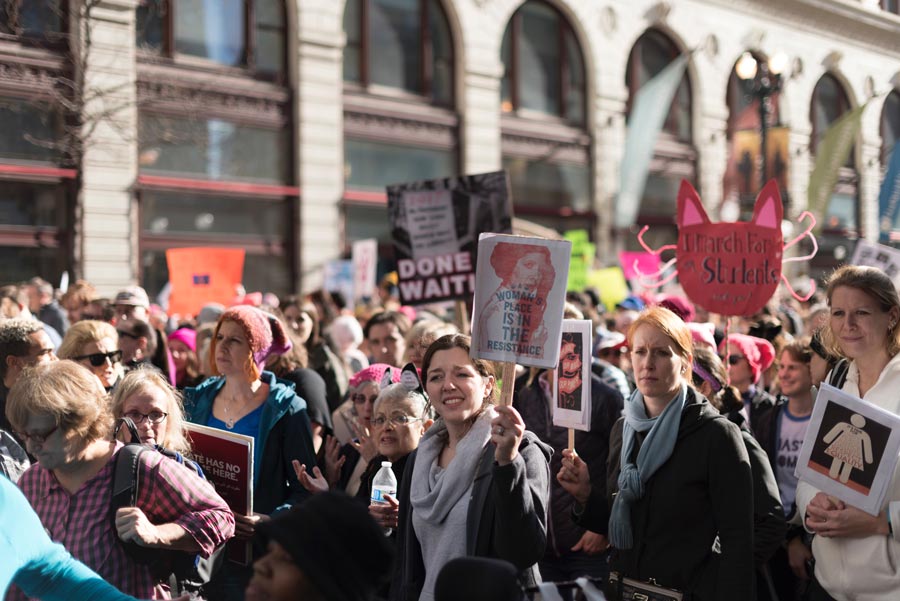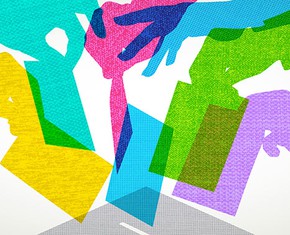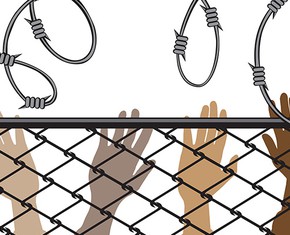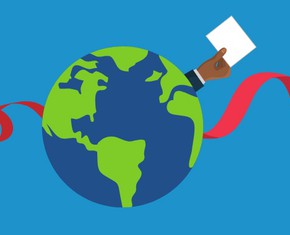The views expressed in our content reflect individual perspectives and do not represent the authoritative views of the Baha'i Faith.
How can we navigate conversations about controversial topics without bringing harm to ourselves?
In too many of my conversations, I find myself trying to convince people to do one simple thing: trust Black women. I recently had one conversation where I tried to convince the other person that patriarchy is an actual component of our reality — and it left me with a pounding headache. In other, less overtly conflictive conversations, I have had to explain how policing the tone of oppressed people when discussing their oppression is yet another form of control. And I recently found myself in a meeting where a vast number of young participants were being talked down to and overly criticized.
RELATED: The Role Latino People Can Play in Ending Racism
My conversations also involved me encouraging people to listen to the experiences of all Black people of all genders and to trust women of many different racial and ethnic identities, but I find the conversation surrounding Black women particularly necessary, as many movements towards justice often exclude our voices. Popular feminist movements often promote the progress of white women over that of Black and brown women, and fights for the holistic freedom of Black folks often make cisgendered men the main focus. When we focus on trying to protect Black boys and men from untimely incarceration and death, we often don’t hear enough of how Black men, among all men, must do better by us and fight for our unique needs, too.

Statistics about Black women’s health show a disproportionately high mortality rate, and current research indicates that racism and sexism are the suspected culprits. Our efforts to educate those around us to activate change also take a toll and contribute to the negative health outcomes apparent in our society at large.
What can improve not only our mental and spiritual state but also our physical wellbeing? We are precious and deserve protecting — how can we navigate these hard conversations without bringing harm to ourselves?
We can choose to walk away from triggers, rather than exhausting ourselves emotionally by remaining in a prolonged triggered state. But we don’t always have an option to discuss or not discuss. Sometimes, we face ignorance in the workplace, at home with family we can’t easily walk away from, or in our usual daily lives by unassuming strangers.
The Baha’i Writings, among many other spiritual writings, encourage us to find ways to lead lives full of light and happiness: “I will no longer be full of anxiety, nor will I let trouble harass me. I will not dwell on the unpleasant things of life.” For me, one of the unpleasant things of life is the uncertainty and constant possibility that someone might say or do something that dehumanizes me at any moment.
It’s sickening to recognize how much racism, sexism, and capitalistic greed pollute my experience and that of my loved ones. To detach from that feeling of helplessness, I’ve been trying to develop an awareness of the things I can change, and build habits to take action.
Here are a few of the goals I have set to protect myself when navigating race and gender oppression-related stress.
Surround myself with like-minded people who validate my experiences and don’t doubt my interpretations.
After facing “controversial” charged conversations, I have a list of people I know I can turn to. With these people, I can process whatever came up during the conversation. While I cannot always control whether these conversations happen, spending as much time as I can around people who promote the well-being of Black women and of people who are systematically oppressed surrounds me with positive energy.

One Baha’i passage advises us to “become independent of those who are plunged in the darkness of self and who tread the valley of arrogance and pride, and be of them that move within the paradise of everlasting life.” Rather than moping around in friendships or relationships where I’m constantly faced with the dark and twisted beliefs many people carry, I choose to be around people who bring heavenly upliftment into my life.
Ask well-intentioned folks to engage with science and art to shed light on topics they aren’t familiar with — rather than re-inventing the wheel intellectually.
I often catch myself getting worked up trying to explain well-documented phenomena. Rather than relaying information that’s already been offered by scientists, activists, and writers and disturbing my inner peace, I’ve started to think it could be immensely helpful to rely on the fruits of art and science to help educate those I converse with.
The Baha’i teachings elevate both scientific and spiritual knowledge to the same level when it comes to understanding the world around us. In a talk in 1912, Abdu’l-Baha, the son of Baha’u’llah said:
“Scientific knowledge is the highest attainment upon the human plane, for science is the discoverer of realities. It is of two kinds: material and spiritual. Material science is the investigation of natural phenomena; divine science is the discovery and realization of spiritual verities. The world of humanity must acquire both. A bird has two wings; it cannot fly with one.” Art is also described as being a powerful tool for uplifting our world. “Arts, crafts and sciences uplift the world of being, and are conducive to its exaltation.”
I aim to rely on these tools and divert stress away from myself.
Remind myself and others that when we engage in conversations to promote justice and equality, we don’t have to ensure that a person understands everything in one sitting.
Even though the wider culture in the United States is largely individualistic, that doesn’t mean that I have to succumb to it. The Baha’i Faith promises that society will transform as we all increasingly engage in its betterment.
RELATED: Invisible No Longer: Robert Turner as a Doorway to the Kingdom
I have started to view the conversations that I have, no matter how seemingly ignored I feel, as potentially part of a larger transformation in the mindset of a person. I imagine that just like when I’m being educated about something, I often have to hear it over and over again from different sources, somewhere down the line whoever I’m speaking to will come into contact with someone else. That person will add on to what I said, pushing them a little further from their ignorance.
Rather than expecting to always get through to a person who triggers me, I can detach and let others also contribute to the process of spreading knowledge and enabling growth. This has made it possible for me to protect myself and let go when there’s nothing else I can do.
















Comments
Sign in or create an account
Continue with Googleor